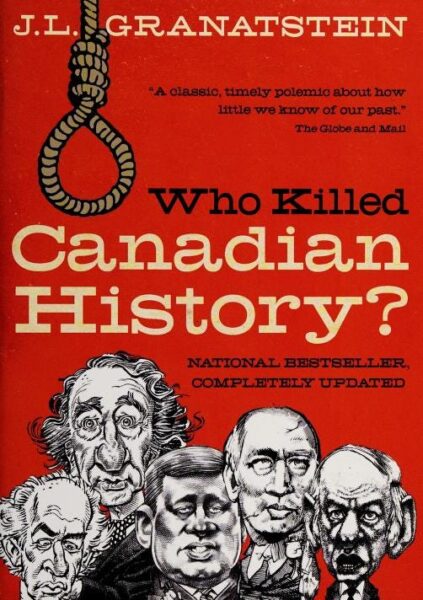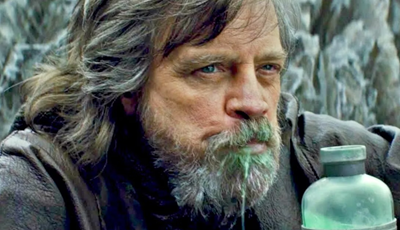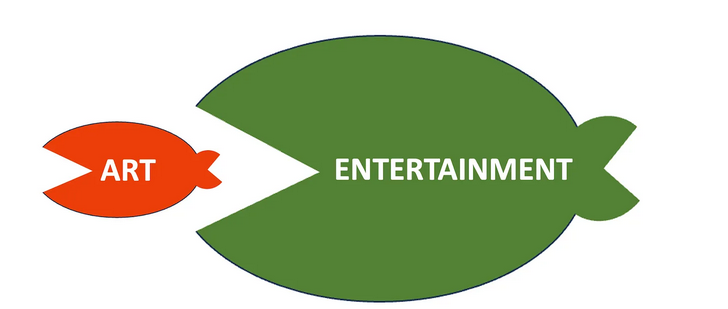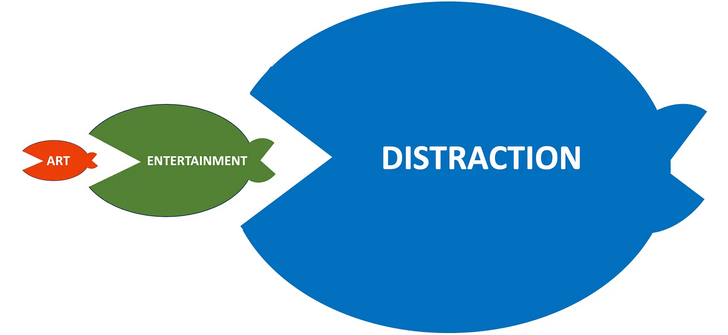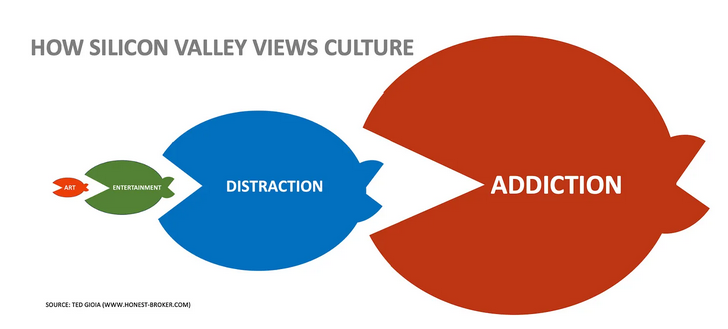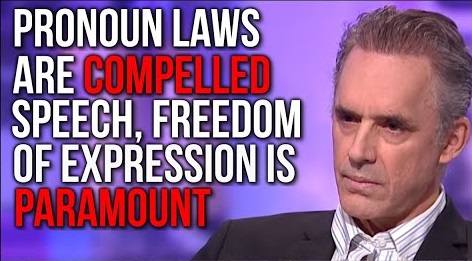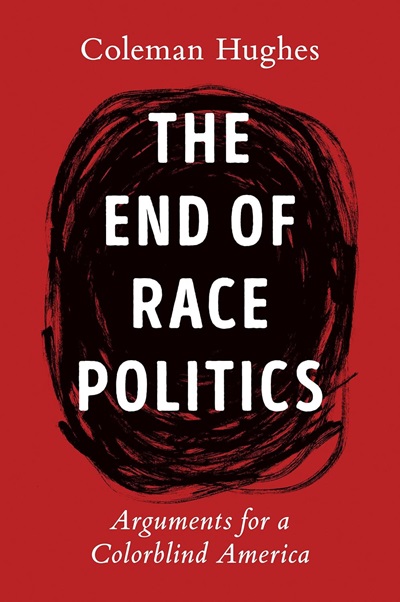First, lockdowns were neither prudent nor essential. It’s not as if government officials considered the collateral damage to be inflicted on the economy, society, and health – not all health problems are caused by covid – by the lockdowns and then rationally concluded that the benefits of locking down outweighed these costs. No. The collateral damages were ignored. As the New York Times‘s Joe Nocera and Vanity Fair‘s Bethany McLean – authors of the just-released The Big Fail – write, “But there was never any science behind lockdowns – not a single study had ever been undertaken to measure their efficacy in stopping a pandemic. When you got right down to it, lockdowns were little more than a giant experiment.”1 In no universe is such a policy prudent.
Nor were lockdowns “essential”. As Nocera and McLean note,
… the weight of the evidence seems to be with those who say that lockdowns did not save many lives. By our count, there are at least 50 studies that come to the same conclusion. After The Big Fail went to press, The Lancet published a study comparing the COVID infection rate and death rate in the 50 states. It concluded that “SARS-CoV-2 infections and COVID-19 deaths disproportionately clustered in U.S. states with lower mean years of education, higher poverty rates, limited access to quality health care, and less interpersonal trust – the trust that people report having in one another.” These sociological factors appear to have made a bigger difference than lockdowns (which were “associated with a statistically significant and meaningfully large reduction in the cumulative infection rate, but not the cumulative death rate”.)
Second, the lockdowns were, contra Mr. Orrell’s claim, utterly unprecedented. Isolating individuals known to be infected, such as Typhoid Mary, is a categorically different measure than locking down whole societies. Such lockdowns were never used until China locked Wuhan down in early 2020. Here again are Nocera and McLean: “On April 8, 2020, the Chinese government lifted its lockdown of Wuhan. It had lasted 76 days – two and a half months during which no one was allowed to leave this industrial city of 11 million people, or even leave their homes. Until the Chinese government deployed this tactic, a strict batten-down-the-hatches approach had never been used before to combat a pandemic. Yes, for centuries infected people had been quarantined in their homes, where they would either recover or die. But that was very different from locking down an entire city; the World Health Organization called it ‘unprecedented in public health history’.”
It’s jarring to encounter in an essay that features many excellent arguments – as Mr. Orrell’s does – such irrational and utterly uninformed claims as Mr. Orrell offers about lockdowns.
Donald J. Boudreaux, responding to an article by Brent Orrell in Law & Liberty, 2023-10-31.
1. “COVID Lockdowns Were a Giant Experiment. It Was a Failure.” Intelligencer, October 30, 2023.
February 26, 2024
QotD: Lockdown rebuttal
February 25, 2024
Who Killed Canadian History?
I was not aware that it has been a full twenty-five years since J.L. Granatstein published his polemical Who Killed Canadian History?:
In that work, Granatstein asserts that the rationale for the history taught in Canadian schools was political, not historical. And sexism and racism were being taught, not history.
In the postmodern era, the priority of vast areas of history teaching and historiography, and Granatstein is far from the only academic who noticed this, transitioned from evidence and facts, to morals and emotions. Western oppression became the source of historiographical obsession. And the practice, which has shaped Western historiography since at least the turn of the twentieth century, of injecting moral judgements adjacent to facts and timelines, became entrenched.
This has happened because important areas of historiography, and historical pedagogy, have been subsumed into social sciences. My 9 and 11 year old children do not have a history class. What they learn about history, which isn’t much, is in a class called “social studies”. My son, who is in grade 6, and who was never previously taught anything about the Holocaust, is learning about Nazis Germany’s persecution of the Jews in the most obscure way. His introduction to the Holocaust included a lesson pertaining to the MS St. Louis, a passenger ship carrying 907 Jewish refugees fleeing Nazi persecution that was refused entry into Canada in 1939.
The ship’s Jewish passengers were safely returned to four European countries, but tragically 254 were later killed in the Holocaust. A terrible outcome. Indeed, one of the rare dark stains on Canada’s otherwise quite exemplary record of offering sanctuary to refugees. But if Canadians at the time had known that refusing entry to the MS St. Louis would result in the cold-blooded murder of 254 innocent people, would they have allowed entry? A question not raised in my son’s class.
As well, what Canadians knew or didn’t know about the genocidal ambitions of the Nazis did not come up in my son’s classroom discussions. Indeed, that would be too complex and nuanced for 12 year old’s. They also did not discuss conditions in Canada at the time that may have played a role in the consequential decision to turn away the MS St. Louis. Nor did they mention the Evian Conference, which occurred the year prior to the MS St. Louis‘ ill-fated arrival to Canada.
The Evian Conference of 1938 was held in the French resort town of Évian-les-Bains. There were 32 participating nations, including Canada, who were “to seek, by international agreement, avenues for an orderly resettlement of (Jewish) refugees from Germany and Austria”. Shockingly, at the close of the talks, none of the nations involved had offered to accept any Jewish refugees.
From the London Spectator (1938):
If the Conference has not been a complete failure, it has achieved little to boast about, all the States sympathizing and none desiring to admit refugees. Even the United States, as prime mover, offers no more than the quota.
My son did not come away from his class with an impression that Canada was not alone in its reluctance to accept refugees. This, and other such lessons, seem as if they are designed to implant a sense of revulsion over Canada’s past failures, instead of patriotism over its achievements and victories. What a disservice to young Canadian learners.
This cherry-picked event from history, which doesn’t really deal with the Holocaust, but assumes kids will appreciate related events that occurred over the backdrop of the Holocaust, is doubly misleading in that it presents Canada as a racist country hostile to refugees, before establishing that the opposite was (and is) overwhelmingly true throughout the arc of Canadian history up to the present.
It’s not even clear if my son took away from the lesson that Hitler was the far bigger villain, compared to his “racist colonial” country of Canada.
Clearly, Canada eventually let in Jewish people, and people from all ethnicities. We became the world’s first multiculturalism, and our large cities are among the most cosmopolitan and multicultural places in the world. This needs to be established first for young learners of Canada’s story. Clearly established, before one starts teaching the exceptions to the rule. But my son is getting some weird blend of oddities presented as introductory material to larger subjects which hold historical conclusions opposite to the ones the cherry-picked exceptions portray. It only makes sense that these exceptional events are selected deliberately for political, not educational, reasons.
Twenty-five years ago, Granatstein wrote of Canadian schools,
The material taught stressed the existence of anti-Aboriginal, anti-Metis, and anti-Asian racism, as well as male sexism and discrimination against women, as if these issues were and always had been the primary identifying characteristics of Canada … The history taught is that of the grievers among us, the present-day crusaders against public policy or discrimination. The history omitted is that of the Canadian nation and people.
Who Killed Canadian History? also criticized the teacher-curated practice whereby early exposure to Canadian history is random and discontinuous concerning time periods and individuals, and “without much regard for chronology”. Exactly what I have been experiencing with my kids, decades after Granatstein identified the problem.
Canadian publishing “has been decimated since Ottawa took an active interest in it and while federal policies haven’t been the whole problem, they’ve been vigorous contributors”
In the latest SHuSH newsletter, Ken Whyte contrasts the wholesome intentions of the Canadian federal government on cultural issues with the gruesome reality over which they’ve presided:
Even James Moore, [Liberal cabinet minister Melanie] Joly’s Conservative predecessor in the heritage department, applauded her initiative as good and necessary, although he warned it wouldn’t be easy. Moore had wanted to do the job himself, but his boss, Stephen Harper, didn’t want to waste political capital on fights with the arts community. He told Moore his job in the heritage department was to sit on the lid.
Joly got off to a promising start, only to have her entire initiative scuppered by a rump of reactionary Quebec cultural commentators outraged at her willingness to deal with a global platform like Netflix without imposing on it the same Canadian content rules that Ottawa has traditionally applied to radio and television networks. Liberal governments live and die by their support in Quebec and can’t afford to be offside with its cultural community. Joly was shuffled down the hall to the ministry of tourism.
She has been succeeded by four Liberal heritage ministers in five years: Pablo Rodriquez, Steven Guilbeault, Pablo Rodriguez II, and Pascale St-Onge. Each has been from Quebec and each has been paid upwards of $250,000 a year to do nothing but sit on the lid.
The system remains broken. We’ve discussed many times here how federal support was supposed to foster a Canadian-owned book publishing sector yet led instead to one in which Canadian-owned publishers represent less than 5 percent of book sales in Canada. The industry has been decimated since Ottawa took an active interest in it and while federal policies haven’t been the whole problem, they’ve been vigorous contributors.
Canada’s flagship cultural institution, the CBC, is floundering. It spends the biggest chunk of its budget on its English-language television service, which has seen its share of prime-time viewing drop from 7.6 percent to 4.4 percent since 2018. In other words, CBC TV has dropped almost 40 percent of its audience since the Trudeau government topped up its budget by $150 million back in the Joly era. If Pierre Poilievre gets elected and is serious about doing the CBC harm, as he’s threatened since winning the Conservative leadership two years ago, his best move would be to give it another $150 million.
The Canadian magazine industry is kaput. Despite prodigious spending to prop up legacy newspaper companies, the number of jobs in Canadian journalism continues to plummet. The Canadian feature film industry has been moribund for the last decade. Private broadcast radio and television are in decline. There are more jobs in Canadian film and TV, but only because our cheap dollar and generous public subsidies have convinced US and international creators to outsource production work up here. It’s certainly not because we’re producing good Canadian shows.
[…]
When the Trudeau government was elected in 2015, it posed as a saviour of the arts after years of Harper’s neglect and budget cuts. It did spend on arts and culture during the pandemic — it spent on everything during the pandemic — but it will be leaving the cultural sector in worse shape than it found it, presuming the Trudeau Liberals are voted out in 2025. By the government’s own projections, Heritage Canada will spend $1.5 billion in 2025-26, exactly what it spent in Harper’s last year, when the population of Canada was 10 percent smaller than it is now.
That might have been enough money if the Liberals had cleaned up the system. Instead, they’ve passed legislation that promises more breakage than ever. Rather than accept Joly’s challenge and update arts-and-culture funding and regulations for the twenty-first century, the Trudeau government did the opposite. Cheered on by the regressive lobby in Quebec, it passed an online news act (C-18) and an online streaming act (C-11) that apply old-fashioned protectionist policies to the whole damn Internet.
This comes on top of the Liberals transforming major cultural entities, including the CBC and our main granting bodies, The Canada Council and the Canada Book Fund, into Quebec vote-farming operations. The CBC spends $99.5 per capita on its French-language services (there are 8.2 million Franco-Canadians) and $38 per capita on Canadians who speak English as the first official language. The Canada Council spends $16 per capita in Quebec; it spends $10.50 per capita in the rest of Canada. The Canada Book Fund distributes $2 per capita in Quebec compared to $.50 per capita in the rest of the country. Even if one believes that a minority language is due more consideration than a majority language, these numbers are ridiculous. They’re not supporting a language group; they’re protecting the Liberal party.
Battleships – Ruling the Waves Across the 7 Seas – Sabaton History 124 [Official]
Sabaton History
Published Nov 16, 2023They were as much symbols of national pride as they were mighty weapons of war, but they were indeed MIGHTY. Dreadnoughts, battleships, super battleships — Sabaton has covered them in songs more than once, and today we dive into the battleship craze of the early 20th century: the Age of the Battleship!
(more…)
February 24, 2024
Justin Trudeau is his own Messiah
In The Line, Jen Gerson gets up a full head of steam (to borrow Matt Gurney’s phrase) over the Prime Minstrel’s brief visit to Alberta and what he revealed about his worldview and his sense of his own importance in an interview with a non-mainstream journalist:
Watching Prime Minister Justin Trudeau give an extended interview to Alberta’s Ryan Jespersen is the first time I’ve ever felt visceral concern about the man leading this country.
I genuinely don’t mean this in any mean or partisan sense. What I mean is that this interview raised serious concerns about Trudeau’s headspace, his judgment, and whether or not this man in particular should be leading the country right now.
The interview wasn’t a disaster: Trudeau brought up fair points that deserve more consideration in Alberta, and I will discuss them here.
But on the whole, what I see here is a man who has wildly inflated his own policy achievements while in office. What I see is a man who cannot accept responsibility for his shortcomings, nor for the real decline in both state capacity and quality of life now affecting Canadians. What I see is a man who won’t take accountability for his own unpopularity.
And, most concerning, what I see is a man who thinks of himself as a messianic figure; a man blind to his own partisan ideology and bad behaviour, but hyper attuned to the same in others. A man who divides the world between black hats and white, and cannot admit the possibility of a legitimate alternative viewpoint — and can, in fact, only explain the very existence of such viewpoints by resorting to the belief that all of his critics have been fooled. Fooled. A word he uses over and over and over again, without realizing the contempt this word betrays of his own feelings toward his audience.
This is a prime minister who cannot see the beam in his own eye; who exemplifies the trait — best summed up by National Post columnist Chris Selley and cited often here at The Line — that Liberals are the sort of people who are sincerely convinced they would never do the sorts of things they routinely do, or are in fact currently doing.
Let’s start with the quotes.
Trudeau starts out by noting that right-wing politicians create wedge issues. “A lot of what the right is doing is about stoking up anger without offering any solutions.” And insisting that right-wing politicians have “realized it’s easy to instrumentalize anger and outrage to get people to vote in a way that is not necessarily in their best interests”.
The last two elections called, Mr. Trudeau. They would like to discuss guns, abortion, vaccine mandates, and pretty much every single other ballot question the Liberals have abused to squeak out minority victories by maximizing vote efficiency in crucial central Canadian ridings.
Of course, it doesn’t count when Liberals court disinformation, or stoke irrational fear about their opponents, because when they do it, they have Canadians’ best interests at heart. They’re the good people, you see.
For when you’re on the side of the angels, on a mission to preserve democracy itself from the manipulative wiles of right-wing politicians out to fool people from holding wrong opinions, what means are not justified?
I would also point out that in the same way that it would be insulting and inappropriate for me to delegitimize Trudeau’s authority by arguing that he obtained two weak majorities by fooling Canadians via manufactured outrage on wedge issues, so too is he required to show some deference to the will of the voters of Alberta. One does not have to agree with everything Premier Danielle Smith does or says or proposes to demonstrate respect for the fact that she is the elected leader of the province, a role she secured in a free and fair election. But, alas.
Donna LaFramboise also reacted to the Ryan Jesperson’s interview of Justin Trudeau, saying that he’s like the Borg from Star Trek:
While visiting Alberta this week, Justin Trudeau was interviewed live by Ryan Jespersen, a former Edmonton morning show host whose podcasts are available on YouTube and elsewhere. That’s when our Prime Minister said the following:
There is, out there, a deliberate undermining of mainstream media. There are the conspiracy theorists, there are the social media drivers who are trying to do everything they can to … prevent people from actually agreeing on a common set of facts — the way CBC and CTV, when they were our only sources of news (and Global) used to project across the country at least a common understanding of things.
Mr Trudeau referred to “people on the fringes” who eschew the “mainstream view”. He said his government’s trying to “make sure Canadians understand the importance of not being fooled by misinformation, by disinformation”. Earlier in the interview, he said Albertans were being “fooled by right-wing politicians” and that oil sands workers have “been fooled” by energy companies.
Mr Trudeau is the Borg from Star Trek. He doesn’t respect alternative views. He has zero interest in listening or negotiating. If your analysis conflicts with his, you’re the problem. Renounce the fringe. Fall into line like the other Borg drones. Adopt the common understanding of things being fed to you by the government funded mainstream media.
February 23, 2024
“Why are the climate fanatics all so posh? The Just Stop Oil activists are always called Cressida or Amy Rugg-Easey or Indigo Rumbelow”
Julie Burchill on the wealthy and well-connected eco-loons in organizations like “Just Stop Oil” and other performative nuisances:

“Just Stop Oil Activists Walking Up Whitehall” by Alisdare Hickson is licensed under CC BY-SA 2.0 .
[Cressida] Gethin is a 22-year-old music student who, among other things, clambered on to a gantry over the M25 in 2022. In doing so, she ruined the trips of 4,000 airline passengers. Whether swinging from gantries or attempting to destroy great art, these young people have the air of never having heard the word “No”.
Why are the climate fanatics all so posh? The Just Stop Oil activists are always called Cressida or Amy Rugg-Easey or Indigo Rumbelow. (Rumbelow has inspired an amusing Twitter game called Find Your Silly Posh Girl Name “by combining a colour with a defunct shop”.) In this, JSO is simply carrying on the glorious tradition of Extinction Rebellion, the leading lights of which had such names as Robin Ellis-Cockcroft and Robin Boardman-Pattinson.
Infamously, Boardman-Pattinson opined in 2019 that “air travel should only be used in emergencies”, despite having been on a number of skiing trips that very year, which he had foolishly posted on social media. It’s no wonder Cressida Gethin picked on desperate sun-seekers to make her point. Like the dowager countess in Downton Abbey who once asked, “What is a weekend?”, posh people who do nothing find it hard to understand what a holiday means to ordinary folk.
Like aristocrats down the ages, these posh clowns get together and breed new generations of clowns. Trans activist Riz Possnett, who glued her hands to the floor of the Oxford Union to protest against feminist Kathleen Stock last year, is the daughter of Extinction Rebellion activist Robert Posnett. He has been arrested several times for making a nuisance of himself. He once glued himself to a Brexit Party bus. The bananas don’t fall far from the tree in this family’s case.
Posnett was once a member of a “band” called Working Class Broccoli, even though her father is a wealthy businessman and her mother is the chief executive of South Cambridgeshire district council. They live in a five-bedroomed house, complete with a swimming pool, in a Suffolk village. Who could blame Tory MP Sir John Hayes, chairman of the Common Sense Group, for opining to the Telegraph that Riz had “gone off the rails” because she hailed from a “deranged bourgeois liberal family, blinded by privilege”?
The privileged have always been drawn to ecological concerns – as I wrote of King Charles many moons ago: “It’s easy for the rich to be Friends of the Earth – it’s always been a good friend to them.” Environmentalism gives our rulers a new way to corral and control hoi polloi now that the old ways of pushing us around are deemed unprogressive.
It is striking that only white people of a certain class and level of over-education enjoy making commuters’ lives a misery. And it is heartening that the people pleading with them to get out of the way are of every colour, creed and class imaginable. Think of the rousing attempts by a crowd to pull a pair of XR clowns from the roof of a rush-hour commuter train (electric!) in Canning Town back in 2019. Or take the summer of 2023, when Stratford schoolchildren were seen remonstrating with Just Stop Oil for making them late to lessons, in some cases ripping protesters’ banners from their hands.
A hastily deleted tweet by XR, comparing its activists to Rosa Parks, probably wasn’t the cleverest move. Not least as every climate-change protest is so overwhelmingly white that it makes the Lib Dem party conference look like the Notting Hill Carnival.
February 22, 2024
The feminization of movies – the Luke Skywalker Effect
Like Lorenzo Warby, I was a fan of the first three Star Wars movies, but rapidly lost interest as the series progressed (I think I watched about half of Attack of the Clones before giving it up as a hack job). Here he gives his opinion on one of the biggest reasons why the later movies sucked:
I am, in many ways, a Stars Wars kid. I can remember sitting in a cinema in 1977, listening to the music play as the opening words flowed across the screen and the sound of the Star Destroyer rumbled out of the speakers and thinking “Yes, a film by One of Us”. That is, a film made by a genuine fan of SF.
A film, moreover, that gave us epic characters. Luke Skywalker: young, eager, physically skilled, charmingly gormless. Han Solo: charismatic rogue (who definitely shot first, that’s what charismatic rogues who read the room do). Princess Leia: the epitome of the competent-beyond-her-age young woman making sure the boys don’t get above themselves. Darth Vader: the looming — and yes charismatic — menace. Chewbacca: scary loyal sidekick. Obi-wan Kenobi: wise, world-weary, teacher with intriguing powers. Grand Moff Tarkin: the ruthlessly competent minion that autocrats both want and fear.
A film that was fun, that was embedded in an intriguing universe. A film that understood the need for training, the hero’s journey, building teams. The briefing of the fighters before the attack on the Death Star is a classic example of informing the audience by letting them see the process of getting everyone on the same page.
I loved the first three films: yes The Empire Strikes Back (1980) is the best of them. I was not entirely sold on the Ewoks, but they were fun. Those films were a huge success for very good reasons.
I was less impressed with the prequels. I described The Phantom Menace (1999) as “Star Wars for six year olds”. Lucas should have stuck with the pattern that worked so well for The Empire Strikes Back — get a good director and have good scriptwriters tighten up his story.
When Lucasfilm was sold to Disney, I was actually pleased. Disney, I thought, knew how to tell stories. Rogue One (2016) seemed to be a vindication of that.
When The Force Awakens (2015) came out, I was so happy to have a big screen Star Wars epic film, I just went with it. There were huge problems with the character of Rey, but I wanted to be taken for a ride, and so was: in so many senses.
Looking back, the writing down of the character of Han Solo was a big red flag. In the original trilogy, he grew as a character, as a person. In the first of the sequel trilogy, we were presented with a broken down, ageing failure as husband and father who had decayed to less than what he was when we first met him.
Meanwhile, we had the Mary Sue of a Rey who was just better than the boys as everything, including running the Millennium Falcon. She didn’t need training or experience, she was just naturally awesome because … girl.
Hollywood pretending that women have the same upper body strength as men is pretty pathetic, but never as pathetic as in the light-sabre fight between Rey and the Emo-Teenager Discount Darth Vader aka Kylo Ren. Yes, Ren was wounded, but years of experience and training counted for naught against Rey because … girl.
The Last Jedi (2017) was so much worse. Again, I wanted to like it, but things just niggled at me all the way through, despite my wish to enjoy the ride.
Once I got out of the cinema and began to consider what I had watched I became very angry. The chubby Chinese girl and belittled Black guy side plot was tired agitprop. Snope had been built up as epic villain but was disposed off with ridiculous expedition without any backstory explanation. Admiral Gender Studies was a study in pathetically bad leadership who clearly had no idea of how to build a team yet presented as a righteous authority. Poe Dameron was diminished into Male Initiative Is Bad Because Toxic Masculinity morality-play persona.
Epic military scenes do not work as parables. Parables subordinate story and character to didactic purpose. Epic military scenes really do not work as parables when the didactic purpose itself is so pathetic.
This is all bad enough, but the unforgivable crime against the entire legacy of Star Wars was what was done with Luke Skywalker’s character.
The original Luke Skywalker was a study in epic heroism. Yes, he was genetically advantaged, but he also trained to hone those advantages. He was not only physically brave, he was morally brave. Alone, captive, in the hands of his enemies — having deliberately surrendered to save his friends — he refuses to strike his father down. Alone, he defies the Emperor to his face and suffers terribly for his decision. He earned his capacities and his heroic standing.
What are we presented with in The Last Jedi? A broken and pathetic shadow of his former self. The offhand disposal of Snope has the effect of belittling the characters of Han Solo and Luke Skywalker even further. Their son, nephew and disciple had defected to the Dark Side because of … an explanation that made no character sense at all.
Seriously, the man who had shown that level of moral courage decided to kill his disciple and nephew because he had disturbing visions? It was an insult to the character, to the legacy and to the audience.
The sequel trilogy, particularly The Last Jedi, was a profound insult to legacy. To the legacy of Star Wars and to legacy within Star Wars. Thus was another parable pushed: legacy is pathetic and needs to be abandoned and subverted. The contemporary progressive contempt for all past human striving — it’s so full of male faces don’t you know, and (in the West) white ones — in fictional form.
We were presented with a universe where men fail as mentors and examples and women don’t need such. The later added-in training of Rey in The Rise of Skywalker was a pathetic patch on a deeper story-telling failure.
Any white male was pathetic, a failure, evil, stupid, toxic or some combination of the same. Meanwhile, the protagonist was great because … girl.
This was a vision that is sexist-racist, in a quite deliberate fashion.
The completion of the trilogy in The Rise of Skywalker (2019) had interest only to see how they were going to resolve (or not) all the story-telling holes The Last Jedi had lumbered the trilogy with. Bringing back Ian McDiarmid’s Palpatine — easily the best thing in the prequel trilogy — was a sign of desperation, of creative exhaustion.
Each of the films in the sequel trilogy did worse than at the box office than the one before. A very clear statement of a legacy being run down.
February 20, 2024
Pronoun mandates – “It would be like being told to announce the colour of your aura every time you began a conversation”
Following up on Brendan O’Neill’s report from last week, Andrew Doyle explains why it’s essential for sensible people to resist compelled speech, which these mandatory pronoun declarations clearly are:
This is how it begins. “Why not add your pronouns to your email signature?” “Why not announce your pronouns at the beginning of meetings?” “Why not encourage your staff members to ask for pronouns in day-to-day conversation?” After all, it’s just about being compassionate and creating a more “inclusive” work environment. Only a bigot would object to that …
It’s this kind of skewed reasoning that has led to the firing of Fran Itkoff, a 90-year-old volunteer for the National Multiple Sclerosis Society in the USA, who simply expressed confusion when faced with a request that she add pronouns to her emails. “I had seen it on a couple of letters that had come in after the person’s name”, Itkoff said in an interview, “but I didn’t know what it meant”.
[…]
Like the vast majority of the population, I use pronouns to denote the biological sex of the person to whom I’m referring. And I certainly would not comply if commanded to declare my own due to my innate aversion to any form of compelled speech. The lessons of history are clear: when those in authority begin to demand the use of certain phrases, they have taken the first step on the pathway to tyranny. I do not wish to see a future in which we are forced to stand in lockstep and chant the approved slogans of the ruling class.
Of course, the declaration of pronouns is far removed from any such scenario, but the principle to me is sacrosanct. I will not be told what to say by anyone, least of all those who claim to know what is best for the good of society. Authoritarians have always couched their demands in faux-benevolence, and we have seen how gender ideologues have a particular tendency to viciousness and bullying. “Be kind … or else” is not a maxim to which I am willing to capitulate.
To ask for pronouns in the workplace is the equivalent of suggesting that employees pledge fealty to a deity they do not worship. It is a kind of test, a way to ensure that the tenets of Critical Social Justice – otherwise known as “wokeness” – are being observed. Spinoza argued that for any man to “be compelled to speak only according to the dictates of the supreme power” is a violation of his “indefeasible natural right” to be “the master of his own thoughts”. Once you agree to make statements in favour of a belief-system you do not hold, you are surrendering your agency to those who will exploit it.
While the declaration of pronouns remains a purely voluntary matter, it is fair to say that no-one’s free speech is being violated. But the consequences for non-compliance in the workplace are becoming increasingly severe. Members of staff are passed over for promotion, they are smeared as unreconstructed bigots and “transphobes”, and eventually shunned and isolated. I have written before about friends of mine in the acting profession who feel uncomfortable in stating pronouns at the beginning of rehearsals, but know that they are unlikely to be recast if they refuse. This may not be compulsion, but it is coercion.
February 19, 2024
The End of Race Politics by Coleman Hughes
Given how far race relations in the United States (and in Canada) have disintegrated since 2009, it’s almost surprising to find someone taking up arms against the race preferences and active discrimination being implemented by governments, organizations, and companies across North America, but Coleman Hughes’ first book does exactly that:
… almost as soon as the 1964 breakthrough in overcoming racial classifications took hold, it was abandoned. In a perverse echo of the past, sanctioned preferential treatment for blacks slowly began to replace sanctioned preferential treatment for whites. Set-asides, quotas, affirmative action all proliferated, all rooted in the old, crude racial classifications. The notion that affirmative action was a temporary adjustment, to be retired in a couple of decades at most, gradually disappeared. In fact, it was extended to every other racial or sexual minority and to women. Even as women and many blacks and other minorities triumphed in the economy and mainstream culture, they were nonetheless deemed eternal victims of pervasive misogyny and racism.
The more tangible the success for women and minorities, the more abstract the notion of “systemic oppression” became. Critical race theorists argued that color-blindness itself was a form of racism; and that all white people, consciously or unconsciously, could not help but be perpetuators of racial hate, whether they intended to or not. That’s how we arrived at a moment when Jon Stewart decided he’d tackle the subject of racial inequality in America by hosting a show called “The Problem With White People”, and when “The 1619 Project” actually argued that the American Revolution was not driven by a desire to be free from Britain but to retain slavery, which Britain threatened.
The poignancy of Coleman Hughes’ new book, The End of Race Politics, lies therefore in the tenacity of his faith in the spirit of 1964. “Color-blindness” is not the best description of this, because of course we continue to see others’ race, just as we will always see someone’s sex. No, as Hughes explains: “To advocate colorblindness is to endorse an ethical principle: we should treat people without regard to race, both in our public policy and private lives”.
That’s a principle the vast majority of Americans, black and white and everything else, support. It was the core principle for Frederick Douglass, Zora Neale Hurston, Martin Luther King Jr, and Bayard Rustin. “If I have advocated the cause of the colored people, it is not because I am a negro, but because I am a man,” insisted Douglass. Henry Highland Garnet — the first African-American to speak in Congress after the passage of the Thirteenth Amendment — even apologized for speaking of various different races, “when in fact there is but one race, as there was but one Adam”.
Fast forward to 2015, when the University of California called the phrase “There is only one race, the human race” a “micro-aggression”; or 2020, when the phrase “All Lives Matter” was deemed evidence of “anti-blackness”. The 21st Century, the brief era of color-blindness behind us, reached back to the 19th to insist that race defines us at our core, can never be overcome, and marks us all either an oppressor or a victim. The left, including the Democratic Party, has now adopted this worldview, along with a legal regime to actively discriminate against some races and not others: “equity”. That’s why Hughes cuts to the chase and calls these reactionaries in progressive clothing “neoracists”. They are. What else would one call them?
They are race-obsessed. They view any human interaction as a racial power-struggle, and compound it with any number of further “intersectional” power-struggles. They do not see two unique individuals with unique life experiences interacting in a free society. They see group identity as determinative everywhere; and therefore want to intervene everywhere, to discriminate against whites and successful non-whites in favor of unsuccessful non-whites. Individual rights? They come second to group identity.
[…]
One in five “black” Americans are immigrants or descended from them, Hughes observes. Only 30 percent of Asian-Americans think of themselves as “Asian” at all, rather as a member of a specific group — like Korean or Indian. Within the Asian box, you also have huge diversity: “In 2015, 72 percent of Indians over 25 had at least a bachelors degree. yet only 9 percent of Bhutanese did.” Ditto “Hispanic”. Any formula that conflates Cubans with Mexicans and Colombians is absurd. And don’t get me started on the LGBTQIA+ bullshit.
The woke also have a staggeringly crude understanding of power. Economic power? No doubt many whites have a huge edge in accumulated wealth in America; but the cultural power of African-Americans is global in reach and far outweighs the cultural clout of, say, white evangelicals or conservatives at home. Political power? Blacks, who are about 14 percent of population, are represented proportionally in the House — covering 29 states — and can claim the last two-term president, the current vice president, the House minority leader, the secretary of defense, the chairman of the Joint Chiefs, the mayors of the four most populous cities last year, and more than a fifth of SCOTUS.
For the neoracists, all racial disparities are entirely explained by “systemic racism”. But this obviously obscures the complexity of American society. “Culture” is a loaded and complex term, but it sure matters. A child with two engaged parents in the home has far more chances to succeed than a kid who barely sees his dad. Now look at the difference between family structure among many Asian-American groups and that of black Americans. And how can one blame “white supremacy” for the constant murderous mayhem of urban black spaces? Only by removing from young black men any concept of their own agency and humanity.
Justin Hayward performs “Forever Autumn” after telling the story behind it
RockEm Live Music
Published Jul 20, 2023The Justin Hayward Band performs “Forever Autumn” at the Plaza Live in Orlando, Florida on February 3, 2023. “Forever Autumn” was written by Jeff Wayne, Gary Anthony Osbourne and Paul Anthony Vigrass, and Justin explains how he got involved in the project at the beginning of this video.
Justin Hayward – Lead Vocals & Guitar
Mike Dawes – Guitars
Julie Ragins – Keyboards & Vocals
Karmen Gould – Flute, Percussion & Vocals
February 18, 2024
“Please, sir, can we have some more Roads?”
Every week, Tristin Hopper helps us understand an element of the week’s news by “imagining” the diary entries of the people or organizations involved. This week, it’s the turn of federal Environment Minister Steven Guilbeault, who had a hell of a week even by Trudeaupian standards:
Monday
There was a time when I was naïve enough to think that the climate crisis could be solved with mere emissions reductions or alternative energy. But it becomes more clear every day that Canada can never hope to meet its climate goals unless we’re prepared to remove redundancies from our economic system.Do we really need to produce any more music? I feel humanity has pretty well covered what a guitar or a trumpet can do; why waste scarce energy to continue heating concert halls or power tour buses? We have a food system that irresponsibly makes no distinction between the carbon footprint of certain foods: We cannot hope to be a climate leader if Canadians continue to eat prawns when a few strips of jicama could suffice.
And above all, this country is positively drowning in unnecessary roads. When the average Albertan starts up his masculinity-compensating coal-rolling monster truck and drives it for hours on a rural Canadian highway without seeing a soul, does it not cross his mind that some resources have been wasted? That man would be fitter, happier and richer if he’d instead been able to make the trip by the eminently more efficient method of bicycle, gondola or monorail.
Tuesday
“Steven Guilbeault wants to ban roads,” they say. But this is not a road ban. Provinces and municipalities can still build all the roads they want. If you and your buddies pool your money for some asphalt and graders — and I decide that it meets all necessary requirements for environmental mitigation, reconciliation and gender-based impacts — then pave away.We’ve merely correctly decided that roads are a wholly inappropriate concern for a Canadian federal government. The task of government is to focus on the fundamentals such as inclusion initiatives for federally regulated industries and means-tested dental subsidies. Things that could not exist if not done by the state.
Anybody can build a few hundred kilometres of glorified driveway.
Wednesday
I’m honestly appalled at the road-worship exhibited in recent days by my Conservative colleagues. I knew they had a regressive fixation on guns, trucks and plastic straws, but even I did not suspect a mass-genuflection for mere strips of asphalt, gravel and whatever else roads are made out of.But perhaps I shouldn’t be surprised. Where else but on a road can one pursue the right-wing fantasies of unfettered resource extraction or colonialist subjugation? Where is their law-and-order militarism without latticeworks of slick, black tarmac to survey and control the citizenry? When armed capitalistic thugs violently crushed the Winnipeg General Strike in 1919, how did they get there? That’s right; roads.
February 17, 2024
Apparently Confucius “had a based libertarian streak”
N.S. Lyons points out some very helpful advice from Confucius that pretty much every western government would benefit from heeding:
I was watching a bit of recent footage of some peasants in revolt, as they are at the moment basically everywhere across the West, and was suddenly struck by the recollection that I’d definitely read a wise saying about the general situation somewhere on a fortune cookie. No, wait, I realized, this time it must actually have been from Master Confucius himself! So I went digging through my copy of the Analects …
Lo and behold, right there in Book 12, Chapter 7, is this straightforward lesson:
A disciple asks Confucius what, fundamentally, it takes to govern a state without it collapsing.
Confucius says: “Simply make sure there is enough armaments, enough food, and that you have the trust of the common people.” (足食,足兵,民信之矣.)
“If sacrificing one of these three things becomes unavoidable, which would you give up first?” the disciple asks. (必不得已而去,於斯三者何先?)
“The weapons,” Confucius replies. (去兵.)
“If two things?” the disciple asks. (必不得已而去,於斯二者何先?)
“The food,” Confucius says, because while even death is a part of life “without the trust of the people, a state cannot stand.” (去食. 自古皆有死,民無信不立.)
What is most notable to me from this little dialogue from almost 2,500 years ago is how much, in comparison, our political leaders, in their hubris and absorption in grand projects (and graft), seem to have forgotten the very basics.
Indeed it strikes me that they already failed on maintaining enough armaments (at least in Europe, though even America now seems to be struggling to produce the most basic munitions). More broadly speaking, they can no long provide security for citizens or defend their own borders.
And now they’ve suddenly got the wise idea of going after the food too, which is a plan that will surely work out great.
The pronoun police claim another scalp
Brendan O’Neill recounts the very sad tale of a 90-year-old woman who has been cancelled by the charity she’d volunteered for over 60 years for questioning mandatory “preferred pronouns”:

Two people at EuroPride 2019 in Vienna holding an LGBTQ+ pride rainbow flag featuring a design by Daniel Quasar; this variation of the rainbow flag was initially promoted as “Progress” a PRIDE Flag Reboot.
Photo by Bojan Cvetanović via Wikimedia Commons.
This strange case tells us so much about our times. It confirms that pronounology is tantamount to a religion among the godless new elites. Showy declarations of one’s pronouns play an entirely doctrinal role. They’re the means through which the new establishment – and those who aspire to enter its rarefied ranks – signal their fealty to the god of political correctness, and to that especially angry god of transgenderism. This is why anyone, like Mrs Itkoff, who questions the faddish mumbo jumbo of putting “he / him”, “she / her” or “they / them” after one’s name must be dealt with severely – because they’re not only querying a way of speaking; they’re blaspheming against the entire cult of correct-thought that the new elites have built in order that they might distinguish between good people and bad people, between in-group folk and out-group folk.
Ostentatious pronoun declaration serves no practical purpose. Consider that even Joe Biden has declared his pronouns. No one is going to mistake this 81-year-old fella for a she / her or they / them. We know dozy old Joe’s a bloke. No, he says “he / him” not to be helpful but to signal his unswerving allegiance to elite opinion, to demonstrate his devotion to the new ruling ideologies. This is why the political class, the corporate world and sharp-elbowed youths who want to get their hands on those levers of cultural power make such a big deal of declaring their pronouns – because they know this religious incantation is a door-opener par excellence.
The reason I never use “preferred pronouns” is simple: I don’t subscribe to the neo-religion of gender ideology, which would have us believe that there are two you’s – your mysterious inner gendered soul and your outward biological appearance. Every time we declare our pronouns, or genuflect to someone else’s “preferred pronouns”, we are implicitly buying into this very modern delusion, this woke hocus pocus. I’m with Mrs Itkoff – the idea that people can choose their pronouns, rather than being allocated pronouns that accord with the truth and reason of their biological sex, doesn’t “make sense to me”.
The Itkoff case also confirms how cavalierly despotic woke has become, especially its post-sex, post-truth trans wing. The trans ideology has enacted numerous cruelties on women. Rapists in women’s prisons, men in women’s domestic-violence shelters, women’s sports almost entirely upended by an invasion of mediocre blokes who’ve changed their name to Crystal or whatever – there is no female right, no basic tenet of decency, that cannot be sacrificed at the altar of gender validation. Now, even the charitable urges of an elderly lady can be thrown on to the bonfire of the cruelties – goodness erased in the name of never offending men who think they’re women. That so-called progressives back this sacrifice of women’s right to organise and speak as they see fit in the name of appeasing delusional men is concerning in the extreme.
Then there’s the ageism. We need to talk about the searing hostility of the woke towards older people, especially older women. You don’t even have to be 90. Witness the ceaseless haranguing of “Karens”, a derogatory term for middle-aged, mostly white women who dare to stand up for themselves in public. They’ve become the hate figures of our time. The author Victoria Smith refers to it as “hag hate”, an “ageist misogyny” aimed at women who are perceived not only to be past their supposed sell-by date, but also, even worse, to be possessed of “incorrect” beliefs. The old ducking of hags in open water has been replaced by the shaming of hags on open web forums.
Partly, it’s just old-world ageist sexism rehabilitated in PC lingo. It should not be surprising that the cult of transgenderism – an ideology that indulges men’s jealous coveting of the hyper-sexualised female body – should be so staggeringly hostile to older women. To women who have “sagged”, whether physically or morally, and thus put themselves beyond the cravings of trans activists who seem to value only the young, the pert, the sexualised. That women are human beings, who go through every stage of human existence, seems to be beyond the moral grasp of trans ideologues for whom womanhood is costume and little more.
But there’s something else going on, too. Today’s fashionable ageism is not only misogynistic – it’s Maoist. When I read about the case of Fran Itkoff, it was Maoism that came to mind. For wasn’t that also a crusade against “the old”? Those hotheaded cancellers of 1960s China openly declared war on the “Four Olds” – old ideas, old culture, old customs and old habits. They demonised and tortured those who gave voice to “old” ideals. Are we not witnessing something similar today? Statues of “problematic” historical figures are torn down, “offensive” old literature is rewritten, old people – like Fran – are sent into social oblivion. Wokeness is Maoism with better PR. We need to do something about it before we arrive in a world where people like Mrs Itkoff are not only cancelled but are also made to stand in public squares with placards around their necks identifying them as rancid old wrongthinkers. It is time to defend “the old” from the crazed young of the woke crusade.

